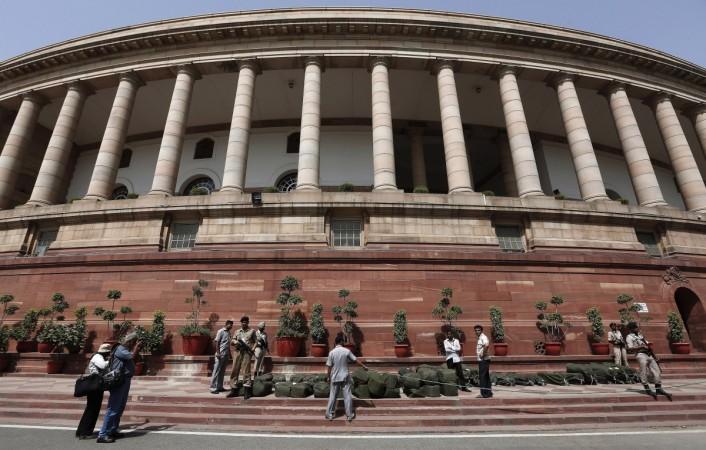
The past 12 months have changed drastically for Indian Prime Minister Narendra Modi, who faces multiple headwinds as his BJP-led NDA government gears up to present the two budgets – Railway Budget on Feb.25 and Union Budget on Feb.29 – for FY2017.
A DBS Bank economist feels that the contrast between last year's budget session and this year's can't be more stark.
"Same time last year, optimism was running high. Indian equity markets were near record highs, the rupee was outperforming its regional peers and a collapse in oil prices (Jan15's USD 48/bbl from Jun14's USD 116/bbl) provided a huge windfall for the fiscal balances," Radhika Rao, economist, group research, DBS Bank, said in a Wednesday note.
Rao, however, added that this year the situation is worrisome for the government.
"Fast forward to the present and some of those positives have faded, not helped by the unfavourable external environment. Indian equity markets are down over 10% so far this year, with the rupee within striking distance of a record low, against the dollar. Bond yields have hardened, with the benefit from low oil prices largely spent and narrow room for further rate cuts. Despite global central banks maintaining an easy policy bias, foreign investors have trimmed their exposure in Jan and Feb."
The situation is tricky for the government, a case of damn-if-you-do and damn-if-you-don't, she said.
"...a possible miss in the FY16/17 deficit targets appears largely priced in. We expect the budget to be focused on three main areas: rural development, addressing banking sector's woes and maintaining capex needs, while absorbing the bigger public sector wage/pension bill. To that extent, a modest overshoot in targets should not surprise. On the other hand, an overshoot beyond 3.8% to 3.9% of GDP will derail consolidation efforts in the past two-three years, drawing the ire of the rating agencies and investor community," the economist said.
With negative sentiments prevailing globally, along with receding hopes of the government's ability to pass reform-oriented legislation, like the GST Bill, has led to foreign investors (FIIs/FPIs) pulling out about $2.5 billion this year from the Indian equity markets, about 20 percent of calendar year 2015's total flows.
On the political front, filibuster is here to stay, with the Opposition in no mood to let the Modi government go off the hook over the two controversial issues – the slapping of sedition charges on New Delhi's Jawaharlal Nehru University (JNU) students Umar Khalid, Kanhaiya Kumar and Anirban Bhattarcharya, and the unfortunate suicide of a Dalit student at the University of Hyderabad last month.
The three students allegedly raised anti-India slogans at an event organised at the JNU while observing hanged terrorist Afzal Guru's death anniversary early this month. The three students surrendered to the Delhi police on Tuesday night, according to the Hindu.
The prime minister said on Tuesday that he hoped the Budget Session of Parliament will be "fruitful," but it is likely to remain just that: a hope.
"The Opposition also made it clear that it will not allow passage of any key Bills in the first half of the session," the BusinessLine reported.
On the second day, BSP leader Mayawati accused the BJP's paterfamilias – the Rashtriya Swayamsevak Sangh (RSS) – of "suppressing Dalit voices," according to an ANI report.
"On Hyderabad University issue, our party holds the administration, students, two ministers at the Centre and their RSS organisation responsible for it," she told reporters outside Parliament on Wednesday.
The furore over the controversial suicide of Rohit Vemula resulted in repeated adjournments of the Rajya Sabha. Vemula was reportedly forced to take the extreme step due to alleged "discrimination" against Dalit students resulting from a letter written by Union Minister of State for Labour Bandaru Dattatreya, following his letter to the Union HRD Minister Smriti Irani.

















